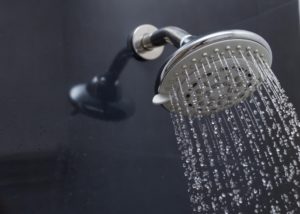One of the most important elements of your plumbing system is the water heater. Without it, showers and hand-washings would be icy and dishes would be washed in cool water. While this might not be a problem for those who prefer to “rough it,” most of you would consider this a major concern.
As with any other major appliance, not all water heaters are created equal. Aside from a number of smaller, model-specific details, they generally come in one of two primary types: tankless water heaters or tank water heaters. In this article, we’ll take a quick look at how water heaters work, discuss the differences between the two types, and list some relative pros and cons of each.
How a Water Heater Works
Although water heaters come in different shapes and sizes and can use different sources of energy, all water heaters are responsible for one thing: bringing city or well water up to a high temperature usable in showers, sinks, dishwashers, washing machines, and other fixtures.
Whether it’s a tank heater or a tankless heater, a water heater usually uses either gas or electricity to function. In a gas tank heater, for example, a gas burner with a flame is used to heat a plate inside the tank that then heats the water. In an electric water heater, electricity is used to power an electrical heating element. As long as the water gets hot, stays hot, and doesn’t create any other issues, the water heater is doing its job.
Tankless vs. Tank: What’s the Difference?
The most obvious and important distinction between tankless and tank water heaters is right in their names; a tankless water heater does not have a storage tank, while a tank water heater does.
Tank Heaters
Traditional tank water heaters tend to be the most common type, especially in older homes where the appliances have not been recently updated. Depending on the size, a tank heater will store and pre-heat anywhere from 30-50 gallons of water for later use. Anytime someone takes a hot shower, runs the dishwasher, or uses hot water for the laundry, this water is used up. Then, the tank refills and is reheated to the appropriate temperature.
One of the most common downfalls of the tank water heater preheating method is that it’s possible to “run out of hot water” for a while. Granted, it takes a lot of water usage to get through 30-50 gallons, but according to data from Home Water Works, the average American shower lasts about 8.2 minutes and uses approximately 17.2 gallons of water. If you or someone else in your home takes particularly long showers, it’s possible that you could go through all the pre-heated water in your tank fairly quickly.
Tank water heaters also tend to create a higher utility bill than tankless heaters, as they store and heat a large amount water to a set temperature whether you need to use that water or not. Tank water heaters can also be quite large and difficult to place, and, generally, last only 10-15 years before water heater replacement is necessary.
There are upsides to traditional tank water heaters, of course, especially with regard to cost. Traditional tank water heaters tend to be significantly cheaper than tankless water heaters (by as much as half, in some cases), and water heater repair, maintenance, and replacement are much easier and more affordable.
Because the majority of older homes still use traditional tank water heaters, the installation of a new tank heater is usually quite straightforward. Nothing needs to be retrofitted, and most plumbers have a great deal of familiarity with how they work. This tends to reduce the labor cost of installation and other servicing over the long run.
Tankless Heaters
A tankless water heater does not store and pre-heat gallons of water. Instead, a tankless heater provides hot water on-demand, using either electricity or gas to power its heat source. The obvious benefit here is that you never have to worry about running out of hot water. A tankless water heater can provide two to three gallons of hot water per minute whenever it’s needed without having to take time pre-heating stored water.
Tankless water heaters are also much smaller than tank heaters (since they’re really just a heating element), can last twice as long (20 years or more), and can be as much as 24-34% more energy efficient than tank water heaters, according to Energy.gov. With a tankless water heater, say the Energy.gov experts, it’s possible to save as much as $100 a year on water heating costs.
The cons of using a tankless water heater are essentially the opposite of the pros of using a tank heater. Tankless water heaters are much more expensive to purchase (can cost anywhere from $2,800-$45,000) and additional water heater installation costs can add up quickly if you’re replacing a traditional tank water heater with a new tankless one. The entire plumbing system will typically need to be retrofitted to accommodate the tankless unit. If the previous water heater was tankless, of course, things should be much simpler.
Which One Should You Get?
By now, you may be asking “what should I get?” In answering that question, it’s important to remember that water heaters really have one purpose: to  reliably provide hot water in a way that works for those in your home. Ultimately, the kind of water heater you choose will depend quite a bit on how much hot water you need, when you’ll need it, and what kind of money you have to spend on the purchase and ongoing maintenance.
reliably provide hot water in a way that works for those in your home. Ultimately, the kind of water heater you choose will depend quite a bit on how much hot water you need, when you’ll need it, and what kind of money you have to spend on the purchase and ongoing maintenance.
If you have a relatively small family that doesn’t shower at the same times or do a lot of dishes and laundry, a tank water heater is probably sufficient as you’re unlikely to use up all of the hot water before it has a chance to refill (again, the number of gallons of storage you choose depends on how much hot water you think you’ll need at maximum). If you have a large family, however, or tend to use a lot of hot water in different places simultaneously it may be beneficial to have a tankless heater if you can afford to make the initial investment.
All of this applies to commercial enterprises, as well; if your building and company are small, a single tank water heater may be all you need. For larger corporate entities, however, a combination of multiple tank and tankless heaters might be necessary. It all depends on the needs and budget of the business.
Of course, as with any major appliance purchase, the final decision is up to you. Just keep these few points in mind while you’re thinking it over.
Maintain or Replace Your Water Heater with Christianson Air Conditioning & Plumbing
Whatever type of water heater you feel is most appropriate for your home or business, Christianson Air Conditioning & Plumbing will be there to provide timely and affordable water heater maintenance, repair, and replacement services. With over 65 years of experience and locations in the Austin Metro, San Antonio, Temple, and New Braunfels, we offer a variety of professional services to a wide-reaching customer base, many of whom are repeat customers.
To learn more about how we can help you maintain your existing water heater, purchase a new water heater, or assist with other air conditioning and plumbing services, call your nearest Christianson Air Conditioning & Plumbing office today!


